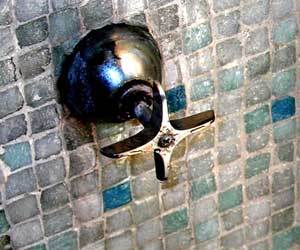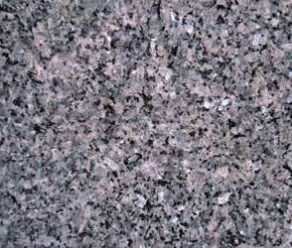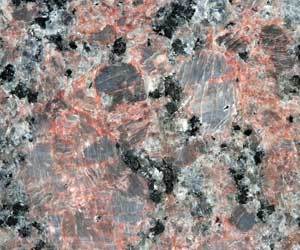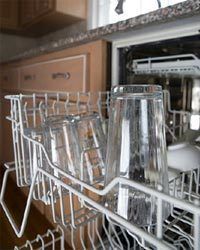
Table of Contents:
Prevention is the key to a soap scum-free bathroom. If you leave this problem for too long, soap scum can become concrete and almost impossible to remove. It occurs from the reaction of hard water with the minerals in everyday household soap. Bar soap contains talc (the basis of soap scum) so one easy way to reduce soap scum is to switch to liquid soap.
What You’ll Need
- White vinegar
- Baking soda
- Sponge
- Borax (optional)
- Powder laundry detergent (optional)
- Dishwashing liquid
- Old toothbrush
- Lemon oil or baby oil or car wax or RainX (optional)
- Squeegee or towel
- Laundry stain remover (optional)
- Ammonia (optional)
- White wine (optional)
- Epsom salts (optional)
The Cleaning Process
- Use vinegar or baking soda to clean caked on soap scum from bathtubs and sinks. Keep white vinegar in a spray bottle and wipe with a damp sponge or sprinkle baking soda, borax, or powder laundry detergent onto a damp sponge to scrub away soap scum. In her book The Ultimate Accidental Houeswife, Julie Edelman suggests using dishwashing liquid and an old toothbrush.
- You may also lemon oil to clean away soap scum by applying it in a circular motion with a sponge and then rinsing it off with a soft cloth.
- Consider using laundry stain remover. Spray onto soap scum and leave for 15 minutes. Rinse completely with water and towel dry.
- Using a squeegee to dry your shower after cleaning it helps by removing all the water that carries the soap scum in it.
- For tough soap scum, Donna Smallin’s Cleaning Plain and Simple recommends sprinkling baking soda directly onto the stain and letting it sit for 15 minutes before scrubbing. You can also prepare a solution of 1/2-c. ammonia to 1-gal. water and apply it to the affected areas with a sponge. WARNING: Ammonia can be very toxic—always wear rubber gloves and keep it away from children. Rinse well with water and towel dry.
- Prevent soap scum by towel drying your shower after each use. If this is too much of a hassle, you may also buy daily shower cleaner that you just spray on after each use (just make sure to buy the kind that doesn’t require rinsing!) Here are some more helpful tips:
- Keep a spray bottle of white vinegar or white wine in your shower. While you’re taking a shower, you can quickly spray the walls with these solutions and rinse with water to help prevent soap scum.
- Use baby oil, lemon oil, car wax, or even RainX (for car windshields) on your shower walls to help keep water from sticking and forming soap scum. Just squeeze some oil into a paper towel and rub into the walls. WARNING: Keep the oil on your walls, not on your shower floor! Sprinkle talcum powder or baby powder on your tub floor and wipe away with a damp cloth to keep someone from slipping.
- You can also use baby oil on your shower curtains to help prevent soap scum. Check out our article on How to Clean a Shower Curtain for more details.
- Adding Epsom salts to your bathwater every time you bathe can help keep soap scum from sticking to your tub.









Preventive Maintenance–
Use the new liquid body soaps since they don’t leave soap scum. I buy mine at Dollar Tree for $1.00 a bottle (and get at least two at a time).
Zest soap also is good for this – it’s much better than other soaps that leave a soap scum which can accumulate quickly.
Be patient, that is the key here!
I give the message 5 Stars!
I use the Fuller Brush Companies “Stainless Steel Sponge.” Wearing rubber gloves, I squirt a generous amount of Lime A-Way into the sponge and then using a circular motion apply to the glass doors or the sides of the shower or tub. It does not scratch and takes the scum & minerals off the surface. Rinse the sponge in hot water and reuse as needed. No need for a costly steamer.
I have learned that the best way to clean soap scum is to make a paste of 1:1:1 baking soda, borax, and salt. Use water to make it pasty, but not too runny. Use the scrubby side of a sponge and put a bit of muscle behind it if it’s thick. Do it regularly (at least every other week) and you’ll never have any problems ever again and you can use whatever soap you like.
I actually found this stuff called Water Armour that works great. It stops soap scum, mildew, mold, and all that stuff from becoming a problem in the first place. It has saved me a lot of time. Definitely recommend it!
Where did you find it and what does it do?
I tried the liquid dish soap (Dawn) – Worked great. Use it direct from the bottle, then immediately forcefully applied a scrub brush. First cleaning in years.
I previously tried a pressure washer – it had removed some stuff, but not the real scum.
Cleaning soap scum isn’t the problem. The issue is preventing it from forming so that you never have to clean it again. I dislike the smell of strong vinegar. Would it be all right to mix a little bit of lemon oil in with the vinegar to cover the smell? Or would that just mix the two scents together into something even more offensive?
Sue,
Mixing in some lemon essential oil or another essential oil that you like the smell of is often recommended for people who don’t like the smell of white vinegar. However, if you are using it on a surface other than glass, you may want to test it in a small hidden area first to be sure it is safe. The lemon oil (and other essential oils) have cleaning properties of their own that might not be safe for all surfaces. To prevent the soap scum, on glass shower doors and porcelain shower walls or sinks you can use Rain-X. Never apply the Rain-X to the floor of the shower though, and consider getting a non-slip mat for the shower as well.
Source: Thrifty-Fun – Rain-X For The Shower